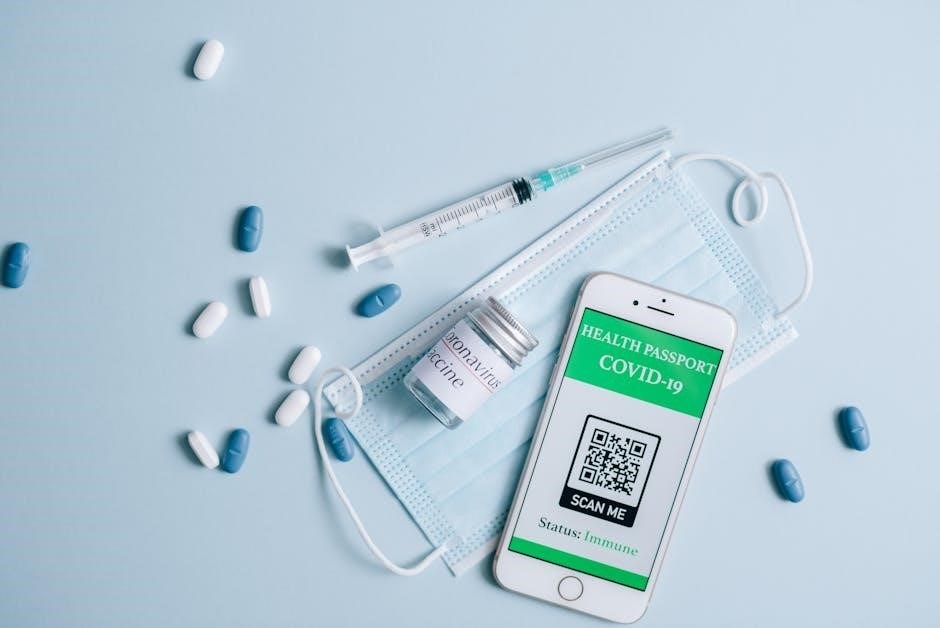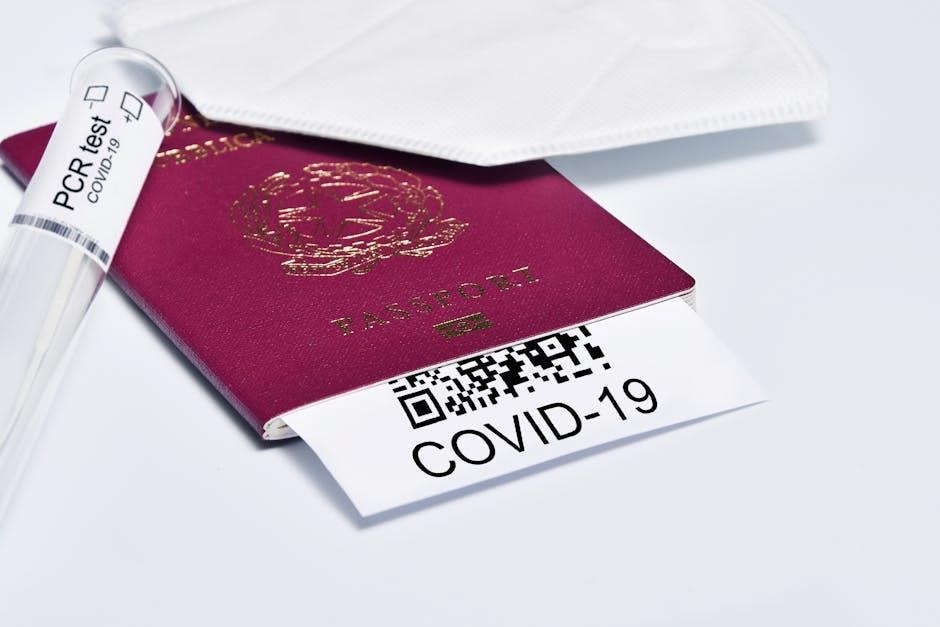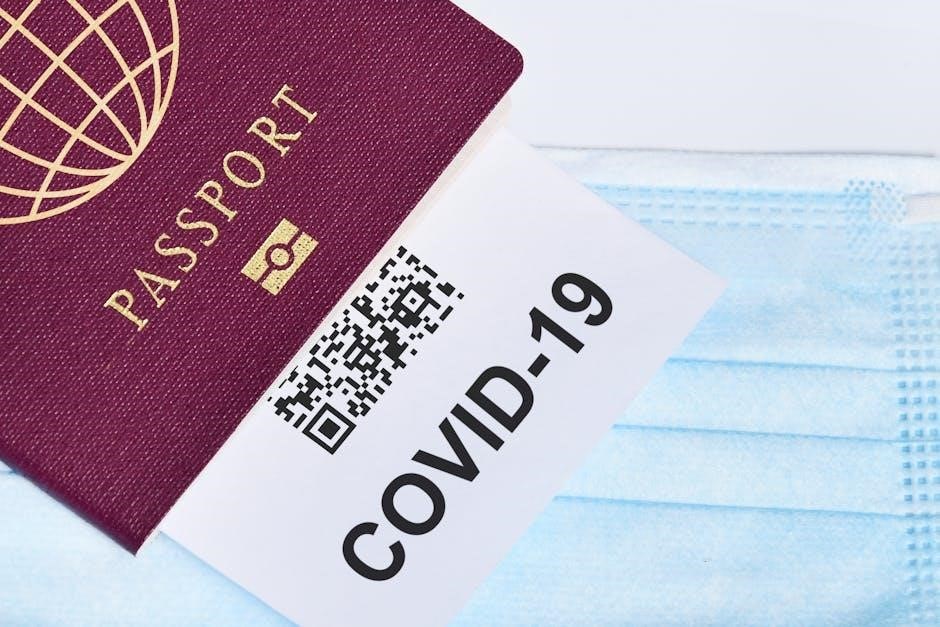Medical coding is a vital process in healthcare that converts diagnoses and treatments into standardized codes. Medical Billing & Coding For Dummies offers a comprehensive guide for beginners‚ covering essential skills‚ updates in ICD-10 and ICD-11 standards‚ and practical advice for starting a successful career in this field.
What is Medical Coding?
Medical coding is the process of converting healthcare diagnoses‚ treatments‚ and services into standardized alphanumeric codes. These codes‚ such as ICD-10 and CPT‚ help classify patient data for billing‚ insurance claims‚ and healthcare analytics. Medical Billing & Coding For Dummies explains that coders translate medical records into codes‚ ensuring accurate data tracking and reimbursement. This process is essential for streamlined healthcare operations and maintaining patient care records efficiently.
Why is Medical Coding Important in Healthcare?
Medical coding ensures accurate and efficient data tracking‚ enabling healthcare providers to manage patient records effectively. It standardizes diagnoses and treatments‚ facilitating seamless billing‚ insurance claims‚ and healthcare analytics. As highlighted in Medical Billing & Coding For Dummies‚ coding supports compliance with regulations and improves reimbursement processes. By maintaining precise records‚ coders play a crucial role in enhancing patient care quality and operational efficiency across healthcare systems.
Overview of the Medical Coding Process
Medical coding involves assigning standardized codes to diagnoses and procedures using systems like ICD-10 and CPT. Coders review patient records‚ identify key details‚ and apply codes accurately. This process ensures data consistency for billing‚ insurance claims‚ and healthcare analytics. As outlined in Medical Billing & Coding For Dummies‚ the process also includes verifying documentation‚ adhering to coding guidelines‚ and preparing claims for reimbursement‚ ultimately supporting efficient healthcare operations and patient care management.
Key Concepts and Terminology
Key concepts include essential terms like ICD-10‚ CPT‚ and HCPCS‚ which are fundamental to medical coding. Understanding these acronyms and their roles is crucial for accurate coding.

Understanding ICD-10 and ICD-11 Codes
ICD-10 (International Classification of Diseases‚ 10th Revision) is a system used globally to code medical diagnoses and procedures. ICD-11‚ the latest update‚ offers enhanced specificity and new codes for modern health conditions. Medical Billing & Coding For Dummies explains these systems in detail‚ helping beginners grasp their structure and application. Understanding ICD-10 and ICD-11 is crucial for accurate coding‚ as they form the backbone of medical billing and data tracking in healthcare systems worldwide.
CPT (Current Procedural Terminology) and HCPCS (Healthcare Common Procedure Coding System) are essential coding systems in medical billing. CPT codes‚ maintained by the AMA‚ are used for procedures and services‚ while HCPCS codes cover equipment and supplies. Medical Billing & Coding For Dummies provides a detailed introduction to these systems‚ helping beginners understand their roles in accurate billing and insurance claims. Mastering these codes is crucial for effective medical coding and billing processes‚ ensuring proper compliance and efficient reimbursement.
Common Medical Billing and Coding Acronyms
Understanding acronyms is key in medical billing and coding. Common terms include ICD-10 (International Classification of Diseases‚ 10th Edition)‚ CPT (Current Procedural Terminology)‚ and HCPCS (Healthcare Common Procedure Coding System). Other essential acronyms are EHR (Electronic Health Records)‚ CMS (Centers for Medicare & Medicaid Services)‚ and HMO/PPO (health insurance plans). These abbreviations streamline communication and documentation. Medical Billing & Coding For Dummies highlights these acronyms‚ ensuring beginners grasp their meanings and usage in daily workflows.

Career Opportunities in Medical Coding
Medical coding offers a promising career path with growing demand in the healthcare industry. Skilled coders are essential for accurate data processing‚ ensuring job security and diverse opportunities.
Medical Billing and Coding as a Profession
Medical billing and coding is a rapidly growing field‚ offering a rewarding career path for detail-oriented individuals. As healthcare expands‚ the demand for skilled coders increases‚ making it a secure and promising profession. Medical Billing & Coding For Dummies highlights the importance of accurate data processing and compliance with standards like ICD-10 and ICD-11. Professionals in this field work in various settings‚ including hospitals‚ clinics‚ and remote positions‚ requiring proper training and certification to excel in this essential role.
Job Roles and Responsibilities
Medical coders and billers play a crucial role in healthcare by assigning accurate codes to diagnoses and procedures. Their primary responsibilities include reviewing medical records‚ ensuring compliance with coding standards like ICD-10 and ICD-11‚ and preparing claims for insurance reimbursement. They must maintain attention to detail‚ stay updated on coding guidelines‚ and collaborate with healthcare providers to ensure accurate documentation. Proficiency in electronic health records and strong analytical skills are essential for success in this role‚ as highlighted in Medical Billing & Coding For Dummies.
Growth Prospects in the Medical Coding Industry
The healthcare sector is expanding rapidly‚ making medical coding a high-demand field. With the increasing need for accurate data processing and electronic health records‚ the role of medical coders is becoming essential. The transition to ICD-11 standards and growing healthcare services further drive demand. As the largest employment sector in the U.S.‚ the industry offers strong growth prospects‚ especially for those skilled in coding and billing. This growth underscores the importance of staying updated and adaptable‚ as highlighted in Medical Billing & Coding For Dummies.

Getting Started with Medical Coding
Medical Billing & Coding For Dummies provides a clear starting point for beginners‚ covering essential skills‚ handling medical records‚ and updates in ICD-10 and ICD-11 standards.
Essential Skills for Medical Coders
Success in medical coding requires strong analytical and attention-to-detail skills. Coders must understand medical terminology‚ anatomy‚ and coding systems like ICD-10 and CPT. Proficiency in electronic health records (EHRs) and staying updated on coding guidelines are crucial. Critical thinking and problem-solving skills help navigate complex scenarios. Effective communication with healthcare providers ensures accurate data entry. Medical Billing & Coding For Dummies highlights these skills‚ offering practical tips to master them and excel in this field. Consistent learning and adaptability are key to long-term success.
Education and Training Requirements
A career in medical coding typically requires postsecondary education‚ such as a certificate or associate’s degree in medical billing and coding. Key courses include medical terminology‚ anatomy‚ and coding systems like ICD-10 and CPT. Certification‚ such as CPC or CIC‚ is highly recommended for job competitiveness. Medical Billing & Coding For Dummies serves as a valuable resource‚ providing foundational knowledge and practical insights to support training and certification preparation.
Resources for Learning Medical Coding
Medical Billing & Coding For Dummies is an excellent starting point for beginners‚ offering clear explanations of complex coding systems. Online courses‚ coding manuals‚ and professional associations also provide valuable learning tools. Additionally‚ websites like dummies.com offer cheat sheets and updates on ICD-10 and ICD-11 standards. These resources help learners master medical coding fundamentals‚ stay updated on industry changes‚ and prepare for certification exams‚ ensuring a strong foundation for a successful career in this field.

Practical Steps to Master Medical Coding
Start with foundational guides like Medical Billing & Coding For Dummies to understand ICD-10 and ICD-11 standards. Practice with real-world scenarios and stay updated on industry changes.
Understanding Medical Records and Documentation
Accurate medical coding relies on clear and detailed documentation in patient records. Medical Billing & Coding For Dummies emphasizes the importance of understanding medical histories‚ diagnoses‚ treatments‚ and test results. Coders must decipher clinical notes‚ lab reports‚ and procedure details to assign correct codes. Attention to detail is crucial‚ as incomplete or ambiguous records can lead to coding errors. Proper documentation ensures compliance with regulations and accurate billing‚ making it a cornerstone of effective medical coding practices.
Best Practices for Accurate Coding
Accurate coding begins with thorough documentation review. Medical Billing & Coding For Dummies advises coders to verify all details‚ such as diagnoses‚ procedures‚ and patient histories. Staying updated on coding guidelines and using reliable resources like ICD-10 and CPT manuals is essential. Double-checking codes before submission and organizing workflows efficiently can minimize errors. Continuous learning and adherence to compliance standards ensure high accuracy and professionalism in medical coding practices.

Using Coding Manuals and Guidelines
Coding manuals like ICD-10 and CPT are essential for accurate medical coding. Medical Billing & Coding For Dummies emphasizes the importance of regularly updating these resources. Coders should refer to official guidelines to ensure compliance and precision. Understanding the latest ICD-11 updates is also crucial for staying current. These manuals provide detailed instructions and examples‚ helping coders navigate complex scenarios and maintain high standards in their work.

Advanced Topics in Medical Coding
Explore specialized coding systems and updates‚ such as ICD-11 enhancements‚ for complex scenarios. Medical Coding For Dummies provides insights into advanced techniques and industry updates.
Specialized Coding Systems and Updates
Stay updated on advanced coding systems like ICD-11‚ which offers enhanced specificity for complex conditions. The Medical Coding For Dummies guide highlights updates in CPT and HCPCS codes‚ ensuring accurate billing. Specialized systems cater to niche healthcare sectors‚ requiring precise knowledge. These updates improve data accuracy and compliance‚ essential for modern healthcare. Understanding these systems is crucial for mastering medical coding in a rapidly evolving industry.
Handling Complex Coding Scenarios
Complex coding scenarios require precision and analytical skills. Medical Coding For Dummies provides tips for simplifying intricate cases‚ such as breaking them into smaller parts. Understanding coding guidelines and updates is crucial for accuracy. Experienced coders often consult manuals and expert resources to resolve ambiguities. Staying updated with industry changes and practicing critical thinking are essential for mastering these challenges in the evolving healthcare landscape.
Staying Updated with Industry Changes
Staying updated with industry changes is crucial for medical coders. Medical Coding For Dummies highlights the importance of adapting to new coding standards‚ such as ICD-11 updates. Regularly reviewing official coding guidelines and updates ensures compliance and accuracy. Subscribing to industry publications and attending webinars helps coders stay informed. Continuous learning and professional development are essential to navigate the evolving healthcare landscape and maintain certification standards effectively.
Mastering medical coding requires dedication and continuous learning. Medical Coding For Dummies serves as a valuable resource to guide beginners. Embrace the evolving healthcare industry by staying updated and pursuing certifications to advance your career successfully.
Final Tips for Success in Medical Coding
Succeeding in medical coding demands attention to detail and continuous learning. Stay updated with ICD-10 and ICD-11 standards‚ as highlighted in Medical Coding For Dummies. Regularly review coding guidelines and seek feedback to improve accuracy. Leveraging resources like cheat sheets and online forums can enhance your skills. Embrace lifelong learning to adapt to industry changes and remain competitive in this dynamic field. Consistent practice and dedication are key to achieving mastery and career growth.
Continuous Learning and Professional Development
Continuous learning is crucial in medical coding due to frequent updates in coding systems like ICD-10 and ICD-11. As emphasized in Medical Billing & Coding For Dummies‚ staying informed about industry changes ensures accuracy and compliance. Engage in regular training‚ subscribe to updates from CMS and AAPC‚ and participate in workshops or webinars. Investing time in professional development not only enhances skills but also supports long-term career growth and adaptability in this evolving field.
Preparing for Certification Exams
Preparing for medical coding certification exams requires thorough study of ICD-10 and ICD-11 codes‚ as well as CPT guidelines. Medical Billing & Coding For Dummies provides practical advice‚ including practice exams and tips for understanding complex coding scenarios. Focus on mastering coding manuals and staying updated on industry changes. Utilize online resources and cheat sheets to reinforce learning. Time management and a systematic approach are key to excelling in exams like the CPC or CIC‚ ensuring a successful start to your coding career.
